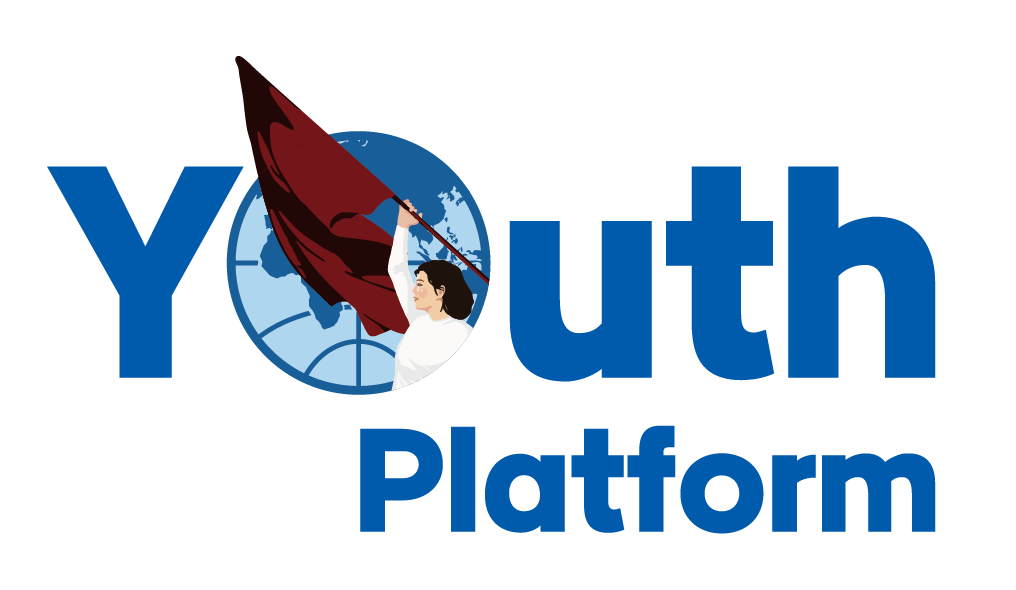League of Communist Youth of Yugoslavia (SKOJ)
Dear comrades,
In the name of the Central Committee of the League of Communist Youth of Yugoslavia (SKOJ), I greet you all, the participants of this Youth Meeting. We see this meeting as a very important event which can serve for the exchange of experience, as well as establishing and further deepening cooperation between anti-imperialist youth organizations. I wish us all a successful discussion!
The League of Communist Youth of Yugoslavia has been active in the international communist movement ever since its foundation in 1992. We have been member of the World Federation of Democratic Youth (WFDY) since 1994, and we participated at the Meetings of European Communist Youth Organizations (MECYO), whose Working group we are currently part of, since 2010. Over more than 30 years of its activity, our organization, together with our Party, have gathered a significant experience regarding the activities in the international communist movement.
To understand the current situation in the international communist movement, we need to go back some 30 years in the past. The early 90’s was a hard period for communists. The end of the Cold war and the dissolution of the socialist countries in Eastern Europe lead to the disappointment among communists, which was especially hard in the war torn Yugoslavia. Most of the parties which had experience in building socialism disappeared, and those in Western Europe were weakened by the wave of euro-communist opportunism (its origin can be traced back to the 70’s). With the disappearance of the Soviet Union and the (temporary) victory of imperialist camp, the working class, both in Eastern and Western Europe, was weakened, which further affected the theoretical basis and practical work of the european communist parties and youth organizations.
During that period, the main theoretical task of the communist parties and youth organizations was to explain conditions which lead to the failure of Eastern European socialism. On the practical level, the task was to gather the scattered communist movement, to reorganize our forces and to prepare for new battles against bourgeoisie. The Communist Party of Greece (KKE) and the Communist Youth of Greece (KNE) took an important role in reviving the communist movement. Although weakened by its own internal splits (at one point KNE was left with just 100 members), it managed to attract communists around Europe and the rest of the World by maintaining its militancy and infrastructure, as well as expressing a strong anti-revisionist political line. Under the initiative of KKE and KNE, international organizations, such as IMCWP, Initiative and MECYO were created, which gave the aforementioned organizations great prestige in the communist movement. NKPJ and SKOJ, despite having some ideological differences, were able to maintain good, even “fraternal relations with Greek comrades” up until recently, due to fact that KKE was the only massive marxist-leninist party in the Balkans region.
The financial crisis of 2008 marks the turning point, the qualitative leap from the relatively stable development of Western imperialism, to the pre-revolutionary stage we are experiencing today. The crisis, followed by the “tightening belt” bourgeois policies, have once again woken up disorganized and disoriented working classes of Europe. With the emergence of socialist China as a global economic and political player that is actively undermining the hegemony of the West through policies such as Belt and Road Initiative, the crisis, as well as the contradictions between imperialist and anti-imperialist camp has deepened significantly. Therefore, a new task was set before the communists—to organize and lead an anti-imperialist struggle with the ultimate goal of using it as a precondition for the overthrow of capitalism. In this struggle, the contemporary marxist-leninist theory should be developed on the basis of “Popular front policy”, developed by the Soviets in 1930’s.
Contrary to the objective material conditions and needs of the contemporary moment, the KKE (and subsequently all organizations who follow its line) developed the so-called “imperialist pyramid theory”. The premise of this theory is that, since capitalism have entered its most developed, imperialist stage, and since monopolies dominate every capitalist economy, all countries are imperialist, no matter how small or dependent they are. In the eyes of this theory, there are just quantitative, and not qualitative differences between capitalism in, for example, USA, Serbia or Uganda. For them, Greece is, for example, exactly the same imperialist power as Great Britain, just smaller. As a result of this theory, its followers reject the popular front policy and the people’s liberation struggle in countries like Korea or Palestine. For them, every bourgeoisie and every capitalism are the same, which means that they reject those who can, at a certain stage in the struggle, help defeating the common, biggest enemy. While talking about “developing marxist-leninist theory”, they are actually “developing” trotskyism in its most vulgar form. It must not be forgotten that, on the one hand, Lenin and the Bolsheviks were willing to make alliances with peasants, petty and even big bourgeoisie in order to overthrow Tsarism and landowners and, on the other hand, Trotsky openly rejected even the idea of the worker-peasant alliance. This “strategy of defeat”, promoted by KKE and KNE did not come from nothing—it can be explained by their position in Greek society, as well as in the international communist movement.
In the decades following the temporary fall of socialism in Eastern Europe, KKE have gradually shifted from sincere anticapitalist party to the “systemic opposition” of capitalism. The use of fiery rhetoric, together with some concessions KKE achieve from time to time, serve as a “steam vent” for the working class in Greece. While displaying “revolutionary” phrases and their admiration of Lenin and Stalin, they do not provide not even an idea, let alone a concrete plan, of how to establish socialism in their country. The KKE, despite being a traditional party with great history, neglects ideological education of its members. Therefore, there are lot of militant comrades who simply do not see the left-wing opportunism of their party leaders.
On the international level, it can be observed that in the recent years KKE, and especially KNE, have created a constellation of their “satellite” organizations. Most of them are small groups who are amazed by the “displays of communism” presented in events such as festivals, camps and congresses. Members of those organizations usually lack proper ideological education—therefore, instead of establishing their own political line based on principles of scientific socialism, they blindly follow the directions of their “big brother”. The sectarian approach of the “satellites” can be observed most clearly in the international events, especially where some sort of common political document should be produced. While “non-pyramid” communist organizations generally try to find a common ground, the “satellites” aggressively impose their positions, which are unacceptable from the anti-imperialist point of view. The often vague and shallow resolutions are the result of insistence on the phrases like the capitalist/imperialist character of China or imperialist competition between NATO and Russia. The destructive work of the “satellites” have weakened the communist movement to the point where most of its institutions are deeply divided and no longer functional. The unilateral dissolution of the Initiative shows that the left opportunists are ready to destroy event their own creations if they find themselves and their non-scientific theories in the minority.
The sharpening contradictions between imperialist and non imperialist camp, as well as the perspective of the World War III (some can argue that the WWIII is already taking place) has brought the communist movement in the situation similar to the one before the October Revolution. In the revolutionary period, the differentiation between opportunists (left or right wing) and communists becomes apparent. In this moment, the communist movement itself needs reorganization, in order to prepare itself for the battles to come, for the struggle against imperialism, for socialism. Therefore, the communist and anti-imperialist organizations, gathered within the World Anti-imperialist Platform, must reunite the divided communist movement and direct it towards the struggle against NATO, EU and the USA hegemony, the struggle for socialism.



